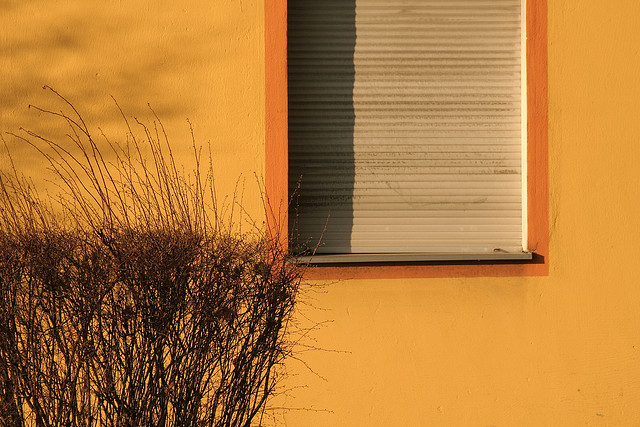
What You Need to Know Before Moving Overseas
‘Steve and Mary from Nuneaton are following their dream, of buying and renovating a period property in rural France. The cottage we are showing them needs a bit of work, but we think that with a bit of updating, it could be stunning. Neither of them speak the language, but they came to this area on holiday last year, and fell in love with the natural beauty and the carefree lifestyle. Mary is an artist, and Steve is a graphic designer, and both hope to set up thriving home businesses in France.’
I quite like watching property shows, particularly A Place in the Sun, but usually spend the episode shouting, ‘NO! Don’t do it!’ at the screen. In part, this is due to watching the series on catchup, and knowing that the adorable finca that the couple are buying in 2007 is going to plummet in value within a year of the show being filmed. Having lived abroad, and moved many times, I know a bit about the process, and the pitfalls. So, this is my ultimate post on what you need to know before moving overseas!
Learn the Language
Yes, it’s a pain, and I must admit that I didn’t do too great with this one when we were in Switzerland, but it is much easier if you speak at least a little before you go. There are a thousand situations that will leave you feeling helpless, if you can’t communicate with the locals. If you are planning on staying long-term, then you will find the acceptance in the community much greater, if you can speak to them in their language (even if not perfectly!)
Job seeking is very difficult when you only speak English, and dealing with bureaucracy and various government offices can be almost impossible in some countries. Particularly if you want to set up your own business, the rules and regulations can be incomprehensible even to native speakers. If you intend freelancing, then it is worth speaking to a local accountant, to ensure you don’t have any difficulties with the tax authorities.
Understand the Mentality of Locals
There are huge differences in the way people approach life in other countries. You wouldn’t think Swiss and Germans would have many clashes of mentality, but they do. The Swiss are all about personal responsibility, and communal thinking – when you live in an apartment block, you aren’t allowed to flush the loo at night, in case you disturb others. While Germans pretty much accept that mowing the lawn at lunchtime, or on Sunday afternoon is inconsiderate of the neighbours, few of them would threaten to call the police, as would happen in Geneva!
This doesn’t mean everyone fits in to the ‘mentality’ of the country, but there are general traits that can be recognised. I’m not talking about stereotypes, like Germans loving beer (they mostly do) or all wearing Lederhosen and Dirndls (they don’t, even in Munich). Mentality is a way of thinking, and you can see examples of it everywhere. The Germans’ love for organisation and their attention to detail is the reason they sell so many cars, and have so many good engineers – although some of that is due to their training and education of course!
Watching the English is a great book about the way British people interact with each other, their behaviour and habits.
Consider Renting for a Year
Instead of buying a house immediately, consider renting for a year. This will give you the opportunity to see if you enjoy living abroad, and to engage with the local community. You’ll get a better idea of the normal house prices, and recognise if the sellers have bumped their price up because they think you are rich expats.
It will also protect you from financial disaster. We know people who moved to another country, bought a house, which then fell in value due to economic situation, and couldn’t sell or move home. This could still happen later, but at least you will know that you actually like living in the country, and want to stay, in which case you’ll be happy to wait till house prices rise again.
Don’t Buy a Ruin – Even One With a View!
Starry-eyed couple with dreams of La Dolce Vita, buy a ramshackle old barn from a delighted farmer, who can’t believe that the English paid so much money for a heap of stones. If you are going to start from scratch with a build (see the next section for reasons not to do this!), then buy a plot of land, and don’t overspend on the romantic idea of the history of the building. It was probably a pig stye .
I can never quite understand the idea of buying a house that is not (and possibly never was) a home. No roof, or walls tumbling, moss growing in the fireplace. You could build a house in a traditional style, and not have the hassle of clearing the land first! Don’t even do this because of the view from the property. If you are buying in an area where the scenery is spectacular, then the view will be the same from another spot nearby.
Renovating or Building a House
Housebuilding differs greatly in other countries. My husband can’t believe the ‘papier-mâché’ houses in UK, with timber-frame, being used to more substantially build brick houses in Germany. Windows in Germany are often sold with integrated shutters, like the above photo, to protect from the heat, and to ensure that it is completely dark at night.
We also noticed major differences in mentality when renovating our house in UK. ‘Oh, no. You don’t want to spend that much money on an oak floor, just put down laminate’, we were told. The builders thought we were daft to put in such high quality products in an ex-council house. We paid much more for windows, than local firms quoted, as my husband insisted on top quality Austrian windows with shutters . (Internorm, from Energy Source, if you are wondering. I can highly recommend them!) Germans build, or renovate, their houses to the highest standard they can afford, and we’ve found this isn’t compatible with the British ‘that’ll do’ mentality of buying cheap fittings.
We were fine, because we understand both mentalities and languages, and were able to insist on what we wanted. If you move to a country where you don’t speak the language, how will you communicate with the builders? It’s not enough to mime where you want the window sill, you need to be able to discuss details. We had a few misunderstandings on our renovation project, and that was all of us speaking the same language!
Know the Legal Situation
If you are making substantial changes to the house, which will require planning permission, make sure you know exactly what this will involve BEFORE you start. Get expert advice from local architects, and don’t trust just one opinion. We looked at a house here which would have needed an extension, which everyone said, “Oh, I’m sure that will be fine”. I made an appointment with a planning officer of the local council and checked first!
Another thing to consider if the ramifications back home. How will your pension be affected by your move? Think of the effect on your credit rating back home, in case you move back. When we moved to UK after years of living abroad, we had no credit history, and found it incredibly difficult to get a mortgage or even a mobile phone contract! How are you intending to pay for the property, and have you considered the effect of a dramatic change in the exchange rate? We have friends who lost a lot of money because their mortgage was in the home country, for the property abroad. When the home currency dropped in value, they were left in negative equity. You should always be in a position that if you had to move back home for any reason, you could do so. My advice would be to accept slightly higher monthly payments if need be, in return for stability of the house price.
It Isn’t a Holiday
If you are moving abroad, because you love the way of life, that you’ve experienced on holiday, you may be in for a shock. Living in the country is very different. My husband has been coming to Scotland with me for 20 years, but he still experienced culture shock when he moved here. The little things that you don’t mind when you are on holiday (or barely notice) suddenly grow in importance, and in level of annoyance.
Maybe it’s the bureaucracy that will annoy you, or the way that people can’t give a straight answer to a simple question. I remember my husband phoning to ask what a customer meant when he said, “Just pop in early afternoon”. In Germany, they arrange appointments at a set time, and then everyone can plan their day accordingly. The British seem to feel that it would be rude to pin someone down to a specific time.
One of the best examples of what to do (and perhaps what not to do!) was this Grand Designs episode, of the couple who created an artists retreat in Puglia, Italy. They already spoke the language as they’d been living in Italy for some years, albeit in a different area. They did buy a ruin, but they did most of the work themselves. It is seriously inspiring, but also a great warning for anyone planning to move overseas!
https://youtu.be/3imM9c5rASI
Featured Image by Santi via Flickr











